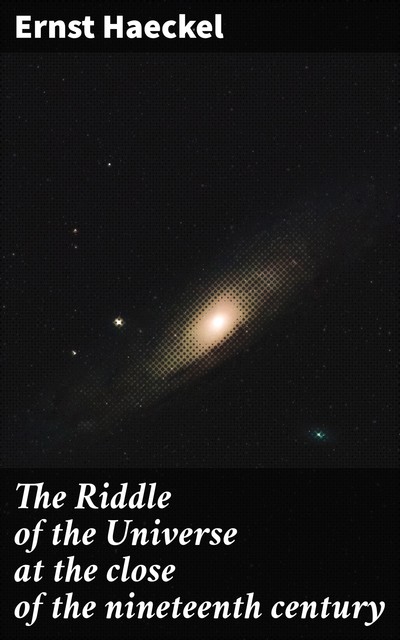In “The Riddle of the Universe at the Close of the Nineteenth Century,” Ernst Haeckel presents a rigorous exploration of philosophical and scientific questions regarding existence, consciousness, and the cosmos during a transformative period in intellectual history. With a distinct blend of scientific inquiry and lyrical prose, Haeckel navigates the philosophical implications of contemporary evolutionary theory, particularly in relation to materialism and spirituality. His synthesis of biology, metaphysics, and aesthetics reflects a deep engagement with the ideas of contemporaries like Darwin and Goethe, distinguishing the work as a pivotal contribution to both the natural sciences and the broader discourse of German philosophical thought. Ernst Haeckel, often regarded as a pivotal figure in the popularization of Darwinian concepts, utilized his background in zoology and philosophy to craft this profound investigation into the interconnectedness of life and the universe. His experiences in the natural sciences and his fervent advocacy for evolutionary theory allowed him to approach profound existential questions with both scientific rigor and philosophical depth. He sought to articulate a worldview that reconciled the empirical observations of science with spiritual and aesthetic considerations, reflecting the intellectual turmoil of his era. Readers who seek a deep understanding of the interplay between science and philosophy at the turn of the 20th century will find Haeckel's work both enlightening and provocative. His insights invite us to reconsider the fundamental questions of existence through a scientific lens while acknowledging the limits of human understanding. As such, this book is essential for anyone interested in the intersections of biology, philosophy, and the quest for knowledge.


